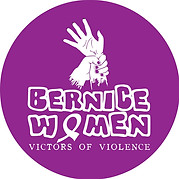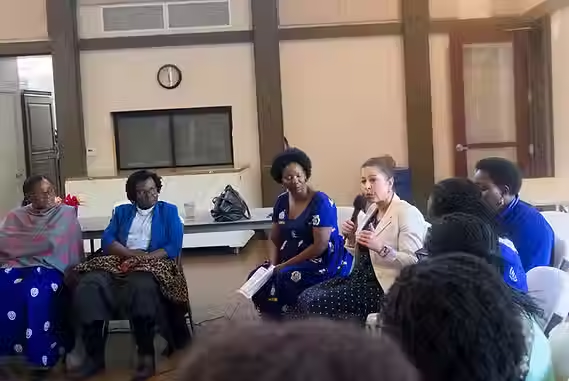

USA Project - 01
Real Estate and Housing Stability
Down Payment Assistance
-
Home prices and incomes have declined despite inflation, impacting Black and Hispanic communities and first-time homebuyers.
-
MWG supports Black and Hispanic families with a down-payment assistance program to build wealth.
-
Homeownership is key to the “American dream,” offering:
-
Control over one’s space
-
Stable monthly payments
-
Tax incentives
-
Improved credit scores
-
-
Home equity constitutes 60% of the middle class’s total wealth.
-
Eliminating racial disparities in homeownership and home equity could reduce the racial wealth gap by 31% and 16%, respectively (Demos analysis).
Homelessness and Affordable Housing
-
America’s homeless crisis is worsening, with a surge in people seeking help.
-
Shelters across the U.S. report waitlists doubling or tripling in recent months.
-
Encampments have increased in parks and public spaces in major cities, from Washington, D.C., to Seattle, since the pandemic began.
Inflation is compounding the problem. Rent has increased fastest since 1986, putting houses and apartments out of reach for more Americans. Ultimately, this leads to homelessness.
Homelessness is a supply-and-demand problem since not everyone has a place to live. Homes cost more as people compete for limited supply. Thus, more people are priced out, and more end up homeless. There are also policy failures, instituting laws and zoning rules that limit the number of available homes.
USA Project - 02
Domestic Violence: Bernice Women
Bernice Women began in 2015 as a support group for career women experiencing violence, with a name meaning "victorious." The group grew to 50 members by the end of 2016.
-
Strategy: Empower women through economic sustainability and personal development to combat domestic and gender-based violence.
-
Campaigns: Address domestic, sexual, and gender-based violence in homes, workplaces, and society.
-
EXPOs: We organize EXPOs under themes like “SUPERWOMAN” to provide knowledge and resources in economic, personal development, and health. Some of the biggest causes of violence in homes and workplaces are finances, disease, etc.
-
Objectives: Raise awareness, end stigma, and partner with health and education professionals to address financial and other factors contributing to violence.

USA Project - 03
-
MWG Mentorship Services: We have been working with African communities in California to provide a sense of belonging for today's youth.
-
MWG is committed to working with religious organizations including churches, Islamic organizations, social services organizations, other youth NGOs to provide mentorship and leadership
-
Support Includes:
-
Career path mentorship
-
Letters of recommendation
-
College and job application guidance
-
Life event support
-
Referrals to mental health professionals if needed
-
-
Mentor Matching: Pairs youth with mentors based on career interests, gender, and similar interests.
-
Mentorship Methods: Utilizes phone, Zoom, Google meetings, and public lunch meetings.
-
Collaboration: Works with other mentorship organizations for additional services.
-
Contact: Reach out via email at admin@minoritywealthgap.org or call 1-818-770-9814 for partnership opportunities.
MWG is proud to showcase the success of our local youth who have completed our youth data science course. Our program not only educates them on technology but also provides them with HP computers upon completion.
Congratulations to all the graduates!
USA Project - 04
Mental Health Awareness
-
Mental health illness does not discriminate by race, color, gender, or sexual orientation.
-
Racial and ethnic minorities face poor mental health outcomes due to cultural stigma and lack of services.
-
Collectively addressing these issues ensures everyone can access quality mental health care.
-
MWG partners with experts to increase access to mental health services, emphasizing that good health is wealth.
-
BIPOC communities, despite their resilience, have higher mental health risks and lack access to mental health education and services.
-
Black and African American populations experience higher illness rates and health inequalities due to reduced healthcare access and quality.
-
Many African Americans delay seeking care due to fear of culturally incompetent doctors.
-
Racial and ethnic minorities are
-
Less likely to get the preventive care needed to stay healthy.
-
More likely to suffer from serious illness, such as diabetes or heart disease.
-
Less likely to have access to quality healthcare when they do get sick.
-
-
MWG promotes health through activities like sports, hiking, walkathons, yoga, youth sporting events, dance classes, and bootcamps.
Single and or Pregnant Black and Hispanic Mothers Support
- Young Americans today are poorer than those 30 years ago. Millennials had the lowest median wealth in 2016 since 1989.
- Graduated into a weakened economy post-2007–2009 financial crisis.
- Limited early career opportunities due to stagnant wages and company growth.
- More racially diverse but faced historical wealth barriers, especially Black Americans.
- Single Black and Hispanic mothers face significant wealth disparities.
- Black women with some college education earn less than white women with high school degrees.
- Median wealth: $42,000 for single white women, $100 for single Black women.
- Higher poverty rates for Native and Black women.
- Black women are three to four times more likely to die from pregnancy-related causes than White women.
- MWG foundation supports Black and Hispanic mothers with:
- Monetary support
- Wellness Access
- Counseling
- Childcare
- Mental health services
Dr. Shabnam Balali
-
Balali is a dual board-certified Addiction Psychiatrist who has partnered with us at events like our Mother's Union.
-
She has worked at UCLA Academics and Los Angeles VA for over 10 years.
-
Recently, she has transitioned to Veteran Affairs VISN Virtual care and expanded her practice to providing clinical care at Kaiser Medical Center.
Mental Health Resources and Hotlines
At Minority Wealth Gap, we care about mental health. We provide access to resources and support through a dedicated button on our website that links to hotlines collected from our partner Mental Health America.
Remember, it's okay to reach out for help.
USA Project - 05
Nutrition and Health Training
Joyce Serving the Community at our Mother's Union Event

Empowering Communities Through Education and Training
At Minority Wealth Gap, we are dedicated to empowering communities through education and access to resources. Our Nutrition Project focuses on teaching healthy eating habits to individuals of all ages, helping them create nutritious meals. Partnering with nutrition expert Joyce, we host events and workshops to educate people on the importance of a balanced diet and how to make positive food choices. Join us in making a difference by supporting our cause through donations and volunteering.
Events we have held:
-
Mother's Union - As shown above, Joyce provided the menu with healthy food and snacks for attendees.
-
Cooking Camp - Teach kids how to prepare healthy meals and practice good eating habits.
Cooking camp
Order and download the menu from Joyce's website.
Enjoy her delicious dishes at your fingertips!

Africa Project 01
School and Farming
In Uganda, 41% of people live in poverty, and almost half of Uganda’s population is under the age of 15, representing one of the youngest populations in the world.
Most people in Uganda live below the poverty line and face many problems, including food and shelter, inadequate health care, unsafe drinking water, poor education and unemployment.
The struggle of the poor starts in the womb. The child in the womb suffers from the consequences of malnutrition in the mother. Families living in such a state are daily wage laborers. They are unable to fetch their square meal a day. Some parents admit their children to school but cannot continue taking them to school because they cannot pay the fees for school. That's the reason the children are school dropouts. Despite planned development and special provision for the accelerated socio-economic development of neglected/disadvantaged sections, the issue of orphan and underprivileged children is not adequately addressed. Therefore, we envisage mainstreaming poor children in the national building by providing care, support and protection in our children’s homes. Poverty has consistently been recognized as the primary cause of disease, death, and disability. The World Health Organization (WHO) recently stated that poverty is the “ruthless killer.” We want to change that.
The project aims to address their shelter, food, education, and health development:
1. To provide an opportunity for orphans and poor children to live in a friendly atmosphere with parental love to pursue their education.
2. To provide food, shelter, education and clothing for orphans and needy children.
3. To provide medical care for the children living in the home.
4. To impart moral values to children to strengthen them to become self-reliant in the home.
5. To provide a quality of life that enables residents to retain their independence, identity and sense of value.
6. To liberate rural women from economic bondage/dependency and poverty and from marginalization to liberate them economically.
Africa Project 02
Bernice Women Africa

“Empowering women economically and personally in the changing world of work in the fight against domestic and gender-based violence...” – Bernice Women.
Bernice Women started in 2015 as a social support group of career women who had been experiencing violence. Bernice means “victorious,” which is a fitting name for such women. The group grew to 50 women by the end of 2016.
Bernice Women‘s strategy is to empower women to take charge of economic sustainability and personal development to end violence. The group has led campaigns against domestic, sexual and gender-based violence in homes, workplaces and society.
BERNICE WOMEN Social support group organizes expos to give more knowledge to career women under the themes such as “SUPERWOMAN” for economic, sustainable and personal development. Bernice Women is privileged to celebrate women and uplift victims and survivors. To end violence, we organize EXPOs, since one of the biggest causes of violence in homes and workplaces is finances, disease etc...To learn and partner with health bodies, Trade, Educationalists, Nutritionists, Health and fitness, economic and financial empowerment etc... It will create awareness, end stigma and shame around women and the public who struggle to learn about their economic situations, among others.
Africa Project 03
Healthcare
Minority Wealth Gap, in collaboration with the Grossman Burn Foundation and Girl Power USA, is leading a transformative healthcare initiative in Uganda. This project focuses on improving burn treatment through specialized training for local doctors, upgrading medical facilities, and raising awareness about burn prevention in communities.
Key efforts include organizing medical missions, developing education programs, supporting local hospitals like Nsambya Hospital, and working closely with Ugandan doctors such as Dr Andrew Ssekitooleko. The initiative also addresses broader healthcare gaps by integrating economic empowerment and community development, ensure long-term, sustainable impact.
SOURCES / CITATIONS
Baradaran, M. (2019). The color of money: Black banks and the racial wealth gap. The Belknap
Press of Harvard University Press.
“Beyond the Numbers.” Mental Health America.
Cabral, Amber. (2022). Allies and advocates: Creating an inclusive and equitable culture. John
Wiley & Sons.
Gallagher, B. (2022, June 29). “Short on your down payment? California's surplus can help.” The
New York Times. Retrieved September 24, 2022, from
https://www.nytimes.com/2022/06/29/us/down-payment-california-surplus.html
Kasakove, S. (2022, April 23). Why the road is getting even rockier for first-time home buyers.
The New York Times. Retrieved September 24, 2022, from
https://www.nytimes.com/2022/04/23/us/corporate-real-estate-investors-housing-
market.html.
Kendi, I. X. (2023). How to be an antiracist. Random House.
Lopez, G. (2022, July 15). “Homeless in America.” The New York Times. Retrieved September
24, 2022, from https://www.nytimes.com/2022/07/15/briefing/homelessness-america-
housing-crisis.html.
“A layered look at domestic violence in the Black community.” Coburn Place. (2022, September
7). Retrieved September 24, 2022, from https://coburnplace.org/stories/a-layered-look-at-
domestic-violence-in-the-black-community/.
CAFWD, June 2022 report
The New York Times August 30, 2022
National Domestic Violence Hotline 1-800-799-SAFE (7233)
988 Suicide & Crisis Lifeline provides 24/7, free and confidential support for people in distress, prevention and crisis resources for you or your loved ones, and best practices for professionals in the United States. Phone: 988 (Spanish and English help available) TTY users: 1-800-799-4889 Hours: 24/7 Website: 988lifeline.org Crisis Chat: 988lifeline.org/chat Crisis Text Line is a free text-enabled support program that provides crisis-related assistance. Text: HELLO to 741741 for English or AYUDA to 741741 for Spanish. Hours: 24/7 Website: crisistextline.org













